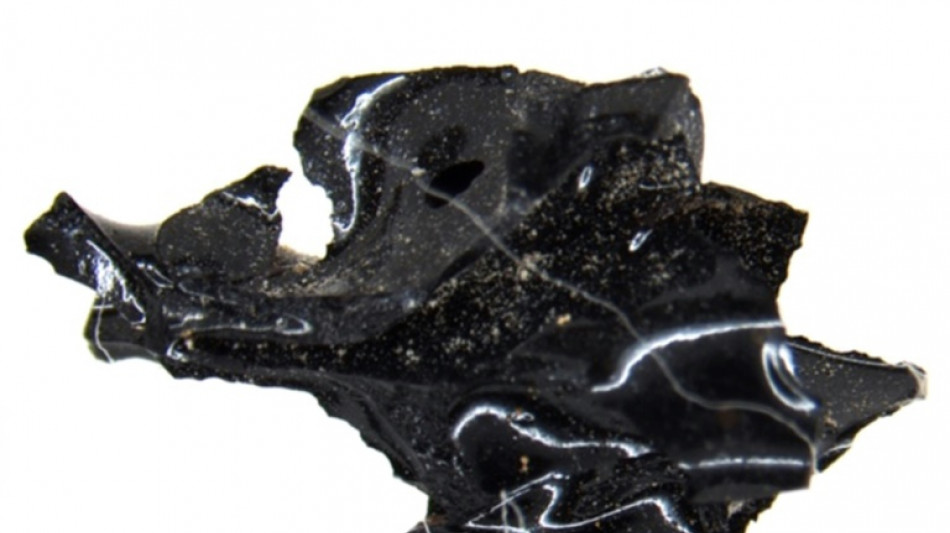
-
 Vance discusses migration during Vatican meeting with pope's right-hand man
Vance discusses migration during Vatican meeting with pope's right-hand man
-
Afghan FM tells Pakistan's top diplomat deportations are 'disappointment'

-
 British cycling icon Hoy and wife provide solace for each other's ills
British cycling icon Hoy and wife provide solace for each other's ills
-
Money, power, violence in high-stakes Philippine elections

-
 Iran, US hold second round of high-stakes nuclear talks in Rome
Iran, US hold second round of high-stakes nuclear talks in Rome
-
Japanese warships dock at Cambodia's Chinese-renovated naval base

-
 US Supreme Court pauses deportation of Venezuelans from Texas
US Supreme Court pauses deportation of Venezuelans from Texas
-
Pakistan foreign minister arrives in Kabul as Afghan deportations rise

-
 Heat and Grizzlies take final spots in the NBA playoffs
Heat and Grizzlies take final spots in the NBA playoffs
-
Iran, US to hold second round of high-stakes nuclear talks in Rome

-
 Humanoid robots stride into the future with world's first half-marathon
Humanoid robots stride into the future with world's first half-marathon
-
Migrant's expulsion puts Washington Salvadorans on edge

-
 Plan for expanded Muslim community triggers hope, fear in Texas
Plan for expanded Muslim community triggers hope, fear in Texas
-
Pakistan foreign minister due in Kabul as deportations rise

-
 White House touts Covid-19 'lab leak' theory on revamped site
White House touts Covid-19 'lab leak' theory on revamped site
-
Dodgers star Ohtani skips trip to Texas to await birth of first child

-
 US senator says El Salvador staged 'margarita' photo op
US senator says El Salvador staged 'margarita' photo op
-
Ford 'adjusts' some exports to China due to tariffs

-
 Thomas maintains two-shot lead at RBC Heritage
Thomas maintains two-shot lead at RBC Heritage
-
US to withdraw some 1,000 troops from Syria

-
 Four killed after spring storms wreak havoc in the Alps
Four killed after spring storms wreak havoc in the Alps
-
Spurs' Popovich reportedly home and well after 'medical incident'

-
 Trump goes to war with the Fed
Trump goes to war with the Fed
-
Celtics chase second straight NBA title in playoff field led by Thunder, Cavs

-
 White House site blames China for Covid-19 'lab leak'
White House site blames China for Covid-19 'lab leak'
-
Norris edges Piastri as McLaren top Jeddah practice

-
 Trump warns US could ditch Ukraine talks if no progress
Trump warns US could ditch Ukraine talks if no progress
-
Judge denies Sean 'Diddy' Combs push to delay trial

-
 80 killed in deadliest US attack on Yemen, Huthis say
80 killed in deadliest US attack on Yemen, Huthis say
-
Lebanon says two killed in Israeli strikes in south

-
 Trump says US will soon 'take a pass' if no Ukraine deal
Trump says US will soon 'take a pass' if no Ukraine deal
-
F1 success is 'like cooking' - Ferrari head chef Vasseur

-
 Cycling mulls slowing bikes to make road racing safer
Cycling mulls slowing bikes to make road racing safer
-
Macron invites foreign researchers to 'choose France'

-
 Klopp 'happy' in new job despite Real Madrid rumours: agent
Klopp 'happy' in new job despite Real Madrid rumours: agent
-
Alcaraz into Barcelona semis as defending champion Ruud exits

-
 Vance meets Italy's Meloni before Easter at the Vatican
Vance meets Italy's Meloni before Easter at the Vatican
-
Evenepoel returns with victory in Brabantse Pijl

-
 Maresca confident he will survive Chelsea slump
Maresca confident he will survive Chelsea slump
-
Mob beats to death man from persecuted Pakistan minority

-
 Lebanon says one killed in Israeli strike near Sidon
Lebanon says one killed in Israeli strike near Sidon
-
Arsenal's Havertz could return for Champions League final

-
 US officials split on Ukraine truce prospects
US officials split on Ukraine truce prospects
-
Client brain-dead after Paris cryotherapy session goes wrong

-
 Flick demands answers from La Liga for 'joke' schedule
Flick demands answers from La Liga for 'joke' schedule
-
'Maddest game' sums up Man Utd career for Maguire

-
 Trial opens for students, journalists over Istanbul protests
Trial opens for students, journalists over Istanbul protests
-
Gaza rescuers say Israeli strikes kill 24 after Hamas rejects truce proposal

-
 'Really stuck': Ukraine's EU accession drive stumbles
'Really stuck': Ukraine's EU accession drive stumbles
-
'Not the time to discuss future', says Alonso amid Real Madrid links


How did this man's brain turn to glass? Scientists have a theory
A young man was lying in his bed when a viciously hot cloud of ash swept down from the erupting Mount Vesuvius and turned his brain to glass almost 2,000 years ago.
That is the theory Italian scientists proposed on Thursday to explain the strange case of the ancient Roman's brain, which they said is the only human tissue ever known to have naturally turned to glass.
This unique brain could rewrite the story of one of history's most famous natural disasters -- and help protect people against this little-understood phenomenon during future volcanic eruptions, the scientists suggested.
When Mount Vesuvius -- near the modern-day Italian city of Naples -- erupted in 79 AD, the cities of Pompeii and Herculaneum were buried in a fast-moving blanket of rock and ash called a pyroclastic flow.
Thousands of bodies have been discovered at the sites effectively frozen in time, offering a glimpse into the daily life of ancient Rome.
In the 1960s, the charred remains of a man aged roughly 20 were found on a wooden bed in a Herculaneum building dedicated to worshipping the Roman Emperor Augustus.
Italian anthropologist Pier Paolo Petrone, a co-author of a new study, noticed something strange in 2018.
"I saw that something was shimmery in the shattered skull," he told AFP in 2020.
What was left of the man's brain had been transformed into fragments of shiny black glass.
- 'Amazing, truly unexpected' -
These "chips" are up to a centimetre wide, volcanologist Guido Giordano, the lead author of the new study in Scientific Reports, told AFP.
When the scientists studied the glass using an electron microscope, they discovered an "amazing, truly unexpected thing," he said.
Complex networks of neurons, axons and other identifiable parts of the man's brain and spinal cord were preserved in the glass, according to the study.
How this happened is something of a mystery.
Glass occurs rarely in nature because it requires extremely hot temperatures to cool very rapidly, leaving no time for crystallisation. It is usually caused by meteorites, lightning or lava.
This is even more unlikely to happen to human tissues, because they are mostly made out of water.
The Roman's brain being preserved in glass is the "only such occurrence on Earth" ever documented for human or animal tissue, the study said.
The scientists determined that the brain must have been exposed to temperatures soaring above 510 degrees Celsius (950 Fahrenheit).
That is hotter than the pyroclastic flow that buried the city, which topped out at around 465C.
Then the brain needed to rapidly cool down -- and all this had to happen before the flow arrived.
The "only possible scenario" was that an ash cloud emitted by Vesuvius delivered an initial hot blast before quickly dissipating, the study said.
This theory is supported by a thin layer of ash that settled in the city shortly before it was smothered.
This would mean the people of Herculaneum were actually killed by the ash cloud -- not the pyroclastic flow as had long been thought.
- 'Poorly-studied' threat -
Giordano hoped the research would lead to more awareness about the threat posed by these hot ash clouds, which remain "very poorly studied" because they leave little trace behind.
French volcanologists Katia and Maurice Krafft, the subjects of the Oscar-nominated 2022 documentary "Fire of Love", were killed by such an ash cloud, Giordano said.
And some of the 215 people killed during the 2018 eruption of Guatemala's Fuego volcano were also victims of this phenomenon, he added.
"There is a window of survivability" for these hot blasts, he emphasised, adding that fitting houses near volcanoes to withstand high heat could help.
But why did the man with the glass brain uniquely suffer this fate?
Unlike Pompeii, Herculaneum had some time to respond to the eruption. All the other bodies discovered there were clearly trying to flee into the Mediterranean Sea.
However the man, who is thought to have been the guardian of the Collegium building, stayed in bed in the middle of town, so was the first hit.
"Maybe he was drunk," Giordano joked, adding that we will likely never know the truth.
A.Ammann--VB




